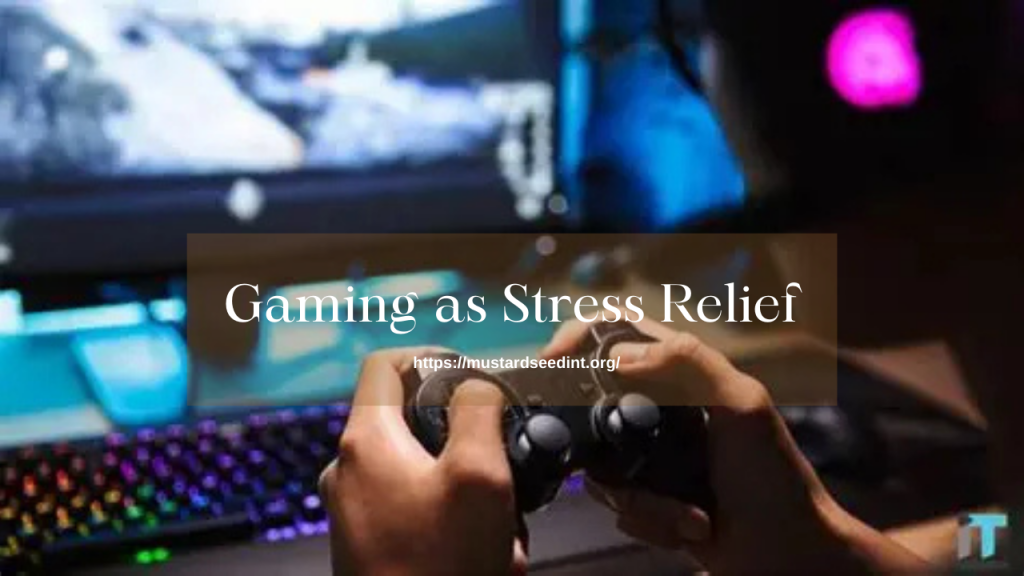
For many people, video games provide a welcome escape from the pressures of daily life. They offer adventure, connection, and a sense of accomplishment in a virtual world that feels far removed from real-life struggles. In moderation, gaming can be a healthy outlet for stress relief. Yet for others, what begins as entertainment gradually becomes a primary coping mechanism, leading to dependency and even addiction. Understanding the fine line between safe play and harmful escape is essential for both prevention and recovery.
The Appeal of Gaming as Stress Relief
Games are designed to be immersive. They allow players to step into different roles, achieve goals, and temporarily leave behind real-world problems. For someone experiencing stress, anxiety, or loneliness, the structure and reward system in games can feel reassuring. Achievements, progress, and community engagement within online platforms provide a sense of control that may be lacking elsewhere in life.
While this temporary relief can be beneficial, relying on gaming as the primary way to manage stress can become problematic. Over time, the virtual world may replace healthy coping strategies, preventing individuals from addressing the root causes of their emotional struggles.
When Stress Relief Becomes Dependency
The transition from balanced gaming to dependency often happens slowly. What starts as a few hours of play to unwind can develop into longer sessions that interfere with work, relationships, and personal health. Signs that gaming may be shifting into addiction include:
- Choosing gaming over social or family commitments
- Difficulty cutting back on time spent playing
- Using games to avoid or suppress negative emotions
- Experiencing irritability or restlessness when unable to play
- Declining performance at school, work, or in daily responsibilities
Recognizing these warning signs early can make a significant difference in preventing long-term harm.
The Hidden Emotional Struggles Behind Gaming Addiction
Gaming addiction is rarely just about the games themselves. Often, it reflects deeper struggles such as stress, depression, trauma, or unmet emotional needs. Many individuals use gaming as a safe haven because it feels less painful than confronting these challenges directly.
At Mustard Seed, we understand that real healing requires more than just reducing gaming hours. It involves uncovering and addressing the emotional and spiritual pain that fuels the dependency.
A Holistic Path to Healing
Treatment for gaming addiction must be compassionate and comprehensive. At Mustard Seed, our programs are built on a holistic and faith-based foundation that supports the whole person. Whether through inpatient or outpatient care, we provide individualized treatment plans that may include:
- Professional counseling and therapy to process underlying stress and emotions
- Faith-based support for spiritual renewal and strength
- Group therapy to build connection and reduce isolation
- Healthy lifestyle practices, including mindfulness and physical wellness activities
- Practical tools for time management and balanced living
This combination helps individuals not only step away from harmful gaming habits but also develop healthier ways to cope with life’s challenges.
Finding Balance Beyond the Screen
Gaming itself is not inherently harmful. For many, it is a fun and social hobby. The key lies in balance. By addressing emotional struggles directly and developing healthier coping skills, individuals can regain control over their relationship with gaming. Recovery is not about giving up joy but about finding freedom to live fully and authentically without relying on a screen as a safe haven.
Take the Next Step Toward Healing
If you or someone you love is struggling with gaming addiction, know that help is available. At Mustard Seed, we are committed to walking with you on the journey to recovery with compassion, individualized care, and holistic healing. True peace and balance can be found beyond the game.
Reach out today to take the first step toward lasting change.